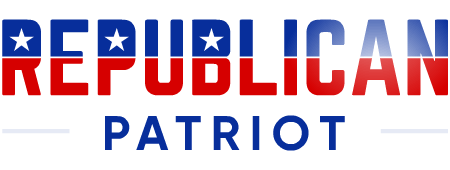
Meta’s recent policy changes, including ending its fact-checking program and easing content restrictions, have ignited debates over free speech and raised concerns about political bias and misinformation.
At a Glance
- Meta discontinues third-party fact-checking, adopting a user-driven Community Notes system
- Content restrictions on topics like immigration and gender identity are being relaxed
- CEO Mark Zuckerberg engages with the Trump administration amid antitrust scrutiny
- Reports emerge of Instagram blocking Democrat-related hashtags, sparking censorship concerns
- Critics question Meta’s commitment to unbiased content moderation and platform neutrality
Meta Overhauls Content Moderation Policies
In a significant shift, Meta has announced the termination of its third-party fact-checking program across platforms such as Facebook, Instagram, and Threads. This initiative is being replaced with a Community Notes system, allowing users to collaboratively add context to potentially misleading posts. The approach mirrors the model implemented by X, formerly known as Twitter. Joel Kaplan, Meta’s Chief Global Affairs Officer, stated that the change aims to permit broader discourse on mainstream topics while focusing on significant legal violations, according to Meta.
This policy adjustment includes the relaxation of content restrictions on sensitive subjects like immigration and gender identity. The move has been met with mixed reactions: supporters argue it champions free expression, while critics fear it may lead to an increase in misinformation and hate speech. Notably, Meta is relocating its content moderation teams from California to Texas, a decision CEO Mark Zuckerberg believes will address concerns of bias and over-censorship, according to Business Insider.
Watch Reuters’ coverage on Meta’s shift away from fact-checking.
Engagement with the Trump Administration Amid Antitrust Concerns
Amid these policy shifts, reports have surfaced of Mark Zuckerberg actively lobbying President Donald Trump and White House officials to settle the Federal Trade Commission’s (FTC) antitrust case against Meta before it proceeds to trial. This development follows Zuckerberg’s attendance at a dinner with Trump at Mar-a-Lago, signaling a potential thawing of relations between Meta and the current administration, as reported by Reuters.
Critics argue that Meta’s recent policy changes and political engagements represent a strategic alignment with conservative agendas, possibly to garner favor with the administration amid regulatory challenges. This perspective is bolstered by Meta’s easing of content moderation policies and the discontinuation of fact-checking programs, which some view as concessions to conservative critiques of the platform’s previous practices, according to The Washington Post.
Censorship Allegations and Platform Neutrality
In addition to policy changes and political engagements, Meta faces allegations of censorship, particularly concerning the blocking of Democrat-related hashtags on Instagram. Users reported that searches for terms like “#Democrat” and “#DNC” yielded hidden results, leading to accusations of partisan bias in content moderation. Meta attributed these issues to technical errors affecting hashtags across the political spectrum and has committed to resolving them promptly, per Axios.
Despite these assurances, the incidents have intensified scrutiny over Meta’s content moderation practices and its commitment to maintaining a neutral platform. Observers note that, in a hyper-partisan environment, such errors can escalate into accusations of bias, potentially fueling conspiracy theories and damaging Meta’s reputation, as detailed by Forbes.
As Meta navigates these complex dynamics, it faces the challenge of balancing its professed commitment to free expression with the responsibility to prevent the spread of misinformation and maintain user trust. The company’s recent actions suggest a strategic recalibration, but whether this will restore public confidence or further entrench perceptions of bias remains to be seen.




















